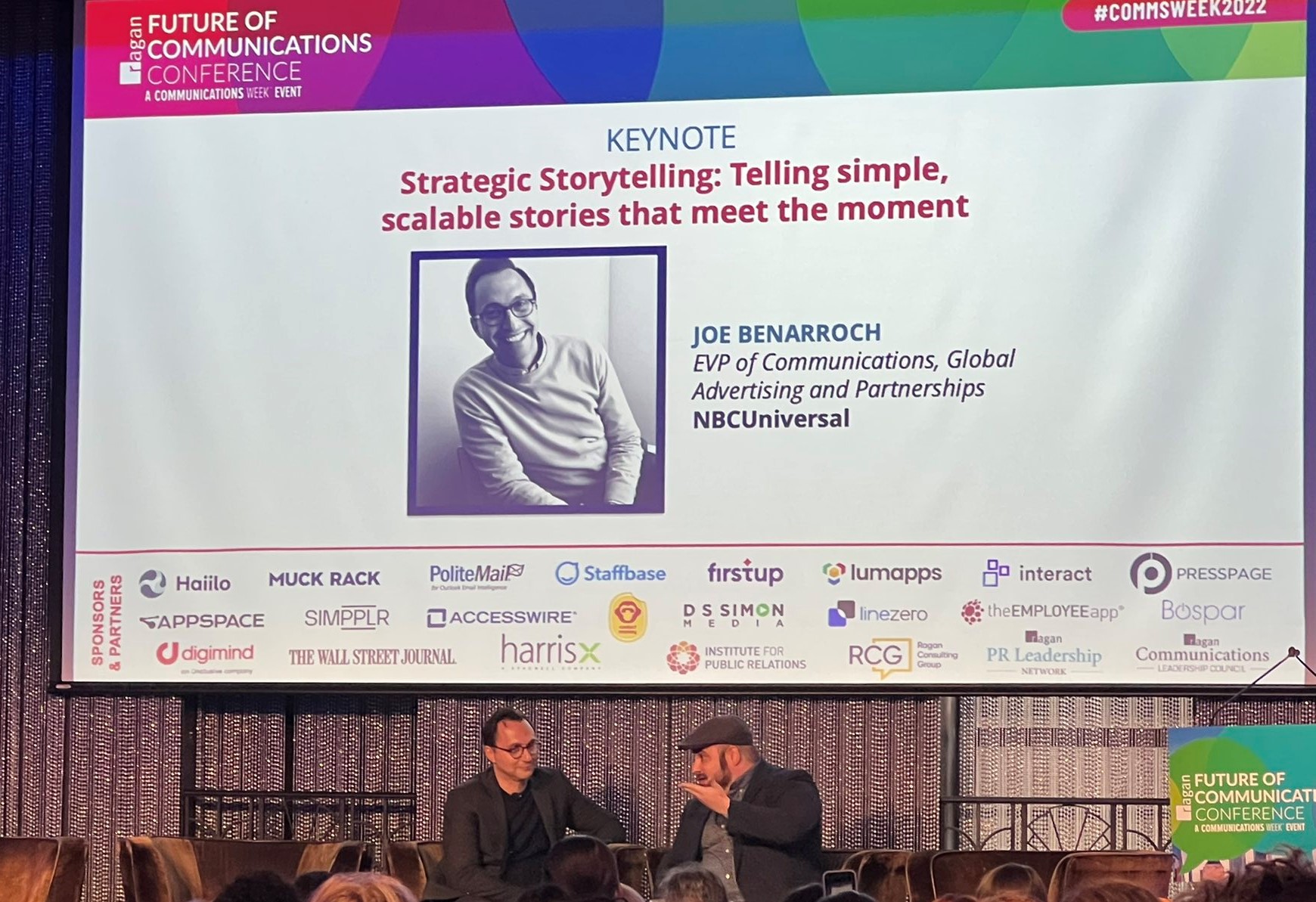Philosophy of empathy: Lessons from NBCUniversal’s Joe Benarroch at Ragan’s Future Comms Conference
Build your stories as rallying points, internally and externally.

Storytelling is more than an action. It’s a philosophy that we must construct and weave through every aspect of what we do as communicators, Joe Benarroch, EVP of Communications, Global Advertising and Partnerships at NBCUniversal, told the audience during the opening keynote of Ragan’s Future of Communications Conference, part of Communications Week 2022.
Benarroch came back time and time again to the idea of building your storytelling philosophy. It’s a way of differentiating yourself in the job market and creating a communications strategy that your team can understand get behind.
“It’s not easy sometimes to get people to rally around (your philosophy), but if you center yourself in it and you believe in it, naturally and organically your activations will start to shape around it and you will have built your own case study,” Benarroch said.
Empathy and values
One cornerstone of these philosophies should be empathy. The importance of this trait has only grown since outset of the pandemic, when we all had to speed up our internal communications plans by two years and really start listening to each other about how we were doing personally and what we needed socially. It’s the foundation of good storytelling, too.
“Empathy is a really, really big thing,” Benarroch explained. “It is a mainstream leadership quality that we all need to take. If you’re leading with pure empathy, you’ll find yourself listening more, you won’t need to be the person speaking all the time, and you’ll be able to get that philosophy out there.”
Part of that empathy is creating safe spaces for diversity, equity and inclusion work. Listening helps us elevate voices besides our own and reach the audiences we all need to succeed. As you move along your DE&I journey, find partners who share these values to take part in your platform and build with you.
“When you partner with a platform that has equal values, there’s mutual benefit there but also an accountability on both parts to keep those values high. It consistently pushes both organizations,” Benarroch urged.
Storytelling for internal and external use
We often think of storytelling as something we project. But in fact it’s something we as communicators reflect.
“Communications isn’t a separate function of the organization. It’s just a pure reflection of how the organization functions,” Benarroch said.
That applies whether communicators are programming a town hall for our CEOs or speaking to a group of journalists we want to become storytellers for us. Benarroch explained that getting ink shouldn’t always be the goal of external communications. Rather, it’s about bringing reporters to a deeper understanding of your organization and helping them connect the dots between you and the broader world. If you accomplish those goals, the press will come in time.
Ultimately, Benarroch left attendees with the idea that developing our communications philosophies helps us refine what kind of resource we want to be for our organization — and how we can do that in a consistent way that furthers our overall goals.
“Talk about not just activating on daily needs, but how you want to ultimately get from A-Z in a way that articulates your strategy.”
The Future of Communications Conference continues Wednesday.
Allison Carter is executive editor of PR Daily. Follow her on Twitter or LinkedIn.







